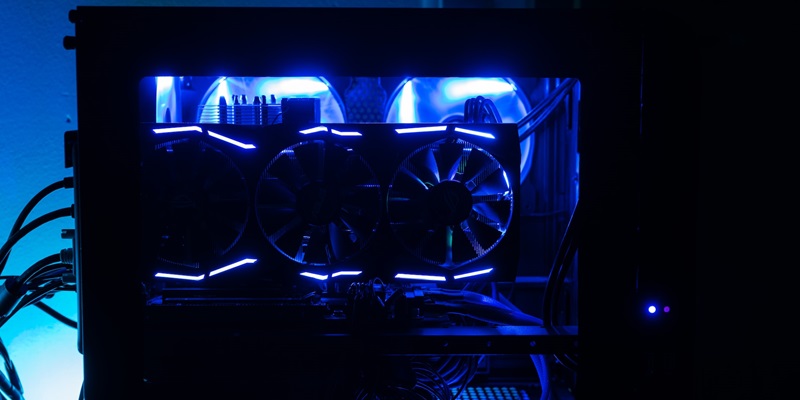AMD’s official Vulkan driver for Linux, AMDVLK, has recently stirred controversy by dropping support for Polaris and Vega GPUs. This decision has left many in the Linux community feeling neglected. However, amidst this discontent, the open-source Mesa RADV driver has been pushing boundaries with ongoing optimizations, providing an alternative for users of aging AMD lineups.
Continued Optimizations in the Mesa RADV Driver
The Mesa RADV driver has been relentless in its pursuit of improving performance and optimizing GPU support for AMD users. Third-party developers have embraced this driver, recognizing its potential to enhance the gaming experience on Linux systems. Through a series of updates and improvements, the RADV driver has solidified its reputation for delivering consistent and robust performance.
Community Response to Drop in Support
The removal of support for Polaris and Vega GPUs in the official AMDVLK driver has caused a sense of dissatisfaction within the Linux community. Some users expressed disappointment at not being able to enjoy the latest features and optimizations offered by AMD. However, the RADV Vulkan driver has stepped in to bridge the gap, allowing enthusiasts to continue using their older GPUs with improved Vulkan support.
Reputation of Radeon RX 500 Series
Despite the drop in support for older GPUs, the Radeon RX 500 series remains highly reputed among Linux users. Known for its exceptional performance and reliability, this series has gained a dedicated following. Many Linux gamers have chosen these GPUs for their outstanding compatibility and extraordinary gaming experience.
AMD’s stake in the Steam Hardware Survey
Further attesting to the significance of the Radeon RX 500 series, the latest Steam Hardware Survey reveals that a substantial portion of AMD’s share on the platform belongs to users of these GPUs. This data highlights the continued relevance and popularity of the Radeon RX 500 series among Linux gamers.
Third-Party Support for Aging AMD Lineups
The void left by AMD’s decision to drop Polaris and Vega GPU support has effectively been filled by third-party developers who are committed to maintaining compatibility and optimizing performance through the RADV Vulkan driver. These developers understand the importance of catering to users with older AMD graphics cards, ensuring they can still enjoy a rich gaming experience without feeling left behind or forgotten.
Performance Improvements through RADV Vulkan Driver
Over time, the RADV Vulkan driver has demonstrated its ability to bring significant performance improvements to AMD GPUs. Through constant updates and fine-tuning, the driver has managed to optimize resource usage, reduce latency, and enhance overall gaming performance. Linux users leveraging the RADV driver have reported smoother gameplay and improved frame rates in various games.
The latest optimization for the RADV Vulkan driver focuses specifically on improving performance for Vega/GFX9 GPUs. By adjusting binning settings, developers have been able to squeeze out even higher FPS and more efficient resource management. This optimization translates to a smoother, more immersive gaming experience on these aging GPUs.
RADV Vulkan Driver as a Viable Alternative
In light of AMDVLK dropping support for older GPUs, the RADV Vulkan driver has emerged as a powerful and viable alternative. With its ongoing optimizations and extensive community support, the driver has proven itself capable of providing a robust Vulkan experience on aging AMD GPUs. Linux users can rely on the RADV driver to bridge the divide and continue enjoying the latest Vulkan features on their older hardware.
AMD’s Future Plans for Next-Gen RDNA 4
While the drop in support for Polaris and Vega GPUs has raised concerns about AMD’s commitment to older lineups, it is noteworthy that AMD is already making strides with its next-gen RDNA 4. AMD has begun rolling out patches and introducing new features to the platform, demonstrating their dedication to the continued development and support for AMD graphics hardware.
While the removal of support for Polaris and Vega GPUs in AMD’s official Vulkan driver has left some Linux users feeling neglected, the RADV Vulkan driver has risen to the occasion, providing ongoing optimizations and enhanced performance for aging AMD lineups. With the reputation of the Radeon RX 500 series still intact and a substantial share of AMD users relying on these GPUs, the community can find solace in third-party support and the continuous improvements offered by the RADV Vulkan driver. As AMD paves the way for future generations of GPUs through RDNA 4, it is clear that they remain committed to evolving and supporting the Linux gaming ecosystem.

